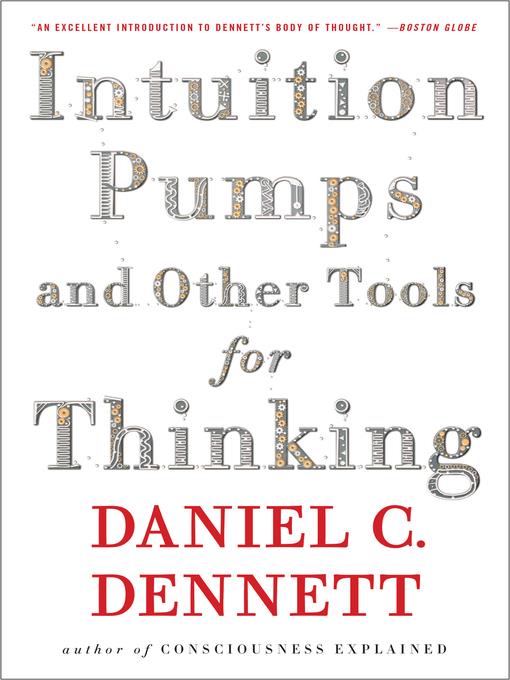
Intuition Pumps and Other Tools for Thinking
کتاب های مرتبط
- اطلاعات
- نقد و بررسی
- دیدگاه کاربران
نقد و بررسی

March 11, 2013
A grab-bag of metaphors and thought experiments, some more enlightening than others, structure this scattershot treatise on the philosophy of mind. Tufts philosophy professor Dennett (Consciousness Explained) rehashes favorite themes from previous works: how consciousness arises from the brain’s decentralized information-processing; how Darwinian natural selection explains the development of complex structure from simple origins in innumerable contexts; how computers and artificial intelligence make potent explanatory models of the mind; the existence of free will in a deterministic universe. Opening with an engaging tutorial on argumentative strategies from reductio ad absurdum to Occam’s Razor to rhetorical questions, Dennett expounds his ideas through a series of “intuition pumps,” his term for the hypothetical scenarios philosophers contrive to explore difficult concepts. Some of these, like conceiving of the body as a robotic survival vehicle for the genes, or the brain as a clueless man trapped in a sealed chamber, are evocative. Others, like an obscure meditation on a vending machine that accepts Panamanian balboas instead of U. S. quarters, are not. In his loose-limbed excursions Dennett presents compelling expositions of provocative ideas, spars with rival thinkers and, sometimes, bogs down in long-winded belaborings of tiresome points. The result is an intellectual smorgasbord with dishes both tasty and indigestible. 31 illus. Agent: John Brockman, Brockman Inc.

May 1, 2013
Dennett (philosophy, Tufts Univ.; Consciousness Explained) thinks of intuition as ideas that have a central place around which other ideas hang. His phrase, "intuition pumps," refers to the philosopher's tools used to push such ideas to their limits. He argues that intuitions are either pushed aside and replaced with new ones, or they survive and become even more firmly rooted. According to Dennett, some of these tools are formal (the reductio ad absurdum), others are informal (various rhetorical fallacies), and still others resemble thought experiments. He introduces these general philosophical tools and then moves to a discussion of topics in which he is well known, such as evolution, consciousness, free will, etc. The author's weakness is lack of analysis; however, the concept of intuition pumps is in general provocative and makes for an entertaining intellectual appetizer. VERDICT Dennett shows himself again to be both avuncular to the curious and confrontational with opposing scholars. General readers and professionals should find him most engaging.--James Wetherbee, Wingate Univ. Libs., NC
Copyright 2013 Library Journal, LLC Used with permission.

























دیدگاه کاربران